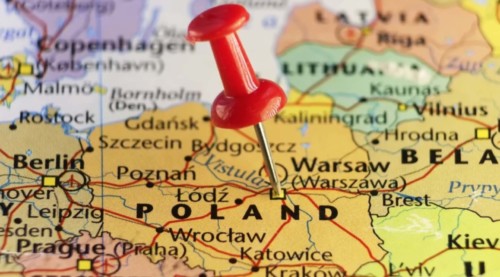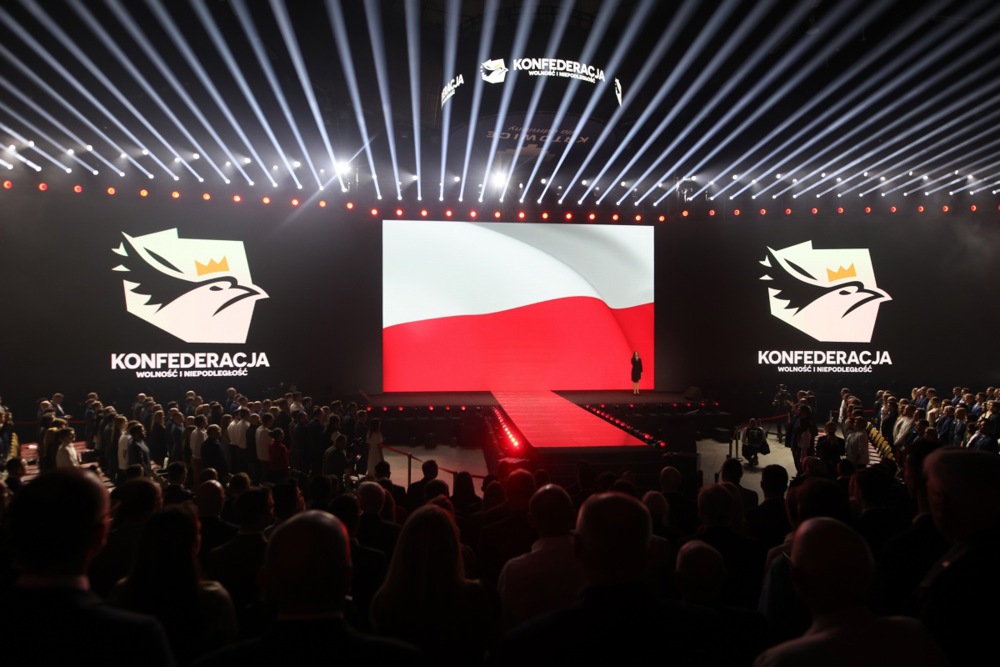The economy is the big absentee from the Polish election campaign. This is despite the fact that the economy was and is the greatest achievement of Poland’s post-communist transformation.
It has been a credit to all Poland’s successive governments over the past 34 years. And today, regardless of whether the October 15 election is won by the ruling Law and Justice Party (PiS) or the opposition Civic Coalition (KO), the winner has a historic opportunity to bring Poland into the elite group of Europe’s richest countries – and claim unprecedented Credit for it.
Sadly, reading their programmes and listening to their speeches, one gets the impression that they are doing everything to squander this chance.
None of the major parties have written into their programme reforms that could ensure the continuation of Poland’s spectacular growth and prosperity. On the contrary, they are outdoing themselves in social handouts, increasing state interventionism and regulations that go even beyond what the European Union is already demanding.
They promise more generous pension benefits, social allowances for families, for students, for those planning to start a family and for those planning to buy an apartment, for those planning a vacation. They are handing out computers to children, guaranteeing farmers purchase prices and cheaper goods to buyers. If there is one group that will not be lavished by politicians, it is small and medium-sized entrepreneurs, to whom Poland owes its great success – both economically and in terms of civilisation
In last three decades, Polish GDP has grown by more than 900 per cent, the best in the history of the OECD, just next to South Korea. GDP per capita rose from $1,700 in 1990 to $19,000 this year. In 1989, Poland’s GDP was only 32 per cent of Germany’s; today it is 73 per cent, and the gap keeps shrinking. In just the last 10 years, exports have increased by 150 per cent and are still the fastest growing in the region.
Over the past quarter century, every time Western Europe fell into crisis, Poland grew all the time, at an average of 3.7 per cent. And today, despite high inflation (12.6 per cent in all of 2023), according to Eurostat Poland is the fourth fastest growing economy in the European Union and the leader in Central and Eastern Europe, taking 2015 as the benchmark.
The next few years, according to the IMF and World Bank, are likely to bring a continuation of this trend. After surpassing Greece and Portugal in terms of per capita income, Poland will soon match Cyprus, Spain and possibly Italy. Some predict it could surpass the UK by 2030.
In this “race” it is sadly not insignificant that several Western economies have no economic growth, or very little.
The dark spots on the otherwise bright map of the Polish economy are primarily the result of political decisions – both from the EU’s de-growth policy and from domestic statism.
In an interesting recent report by the Polish daily Puls Biznesu, the authors pointed out that, despite the impressive growth of foreign investments in Poland, we observe a decline in internal investments: “One of the biggest paradoxes related to the economic development of Poland in recent years is that, being a country with high foreign investment, Poland is at the same time has the lowest rate of fixed asset investment in the region.”
The paradox perfectly captures the biggest problem of the Polish economy, which is the political class, or more precisely, the stabs politicians are throwing at entrepreneurs. The reason why Polish companies are not investing in their own country are mainly regulatory uncertainty and an opaque, oppressive tax system.
Last year Poland ranked 36th out of 37 countries surveyed in the latest Tax Competitiveness Index. The problem has been repeatedly reported to political parties by business organizations, including the Warsaw Enterprise Institute. However, none of the major political parties have taken note in their election programs.
Another hypothesis explaining the paradox is the domination of the state-controlled companies. Above all, they are carrying out the political demands of the state, crippling competition around them and disarming free markets along the way.
The latest example concerns the underpricing of gasoline by Poland’s largest state fuel operator. The company, most likely pressured by politicians trying to mitigate the effects of inflation and price increases before the elections, artificially lowered prices. The whole operation ended in a propaganda failure, after it turned out that some stations ran out of fuel.
This is just one of many examples of the unpredictability and risks caused by politicians, which partly explain the reluctance of Polish entrepreneurs to invest in their own market.
The opposition, of course, accused the government of abusing power and manipulating prices for political aims. The truth is, however, that the same abuses were committed by the previous government of the current opposition leader, Donald Tusk. It is significant that neither party have any proposals for systemic changes – neither in terms of privatising state-owned companies nor limiting the influence of politicians on their activities.
Both parties want to uphold state capitalism. The opposition would only like to change people in managerial positions in state companies – from “their” people to “our” people.
On the surface, the political scene in Poland appears to be quite broad with diverse, competing parties. But there is a strange consensus on economic issues. Both main parties and many smaller ones offer further massive social redistribution, no major tax overhaul, no privatisation, and perhaps even further nationalisation.
Without deep reforms, Poland’s economic miracle will not last. The disastrous demographic situation requires a wise migration policy and entrepreneurial engagement rather than deactivation. It required a wise growth policy, not European de-growth. It needs smart taxes to help Polish companies compete in Western markets.
Unfortunately, today we are dangerously close to squandering an historic opportunity.





Poland’s elections matter way beyond the country’s borders – they could presage a realignment in European politics